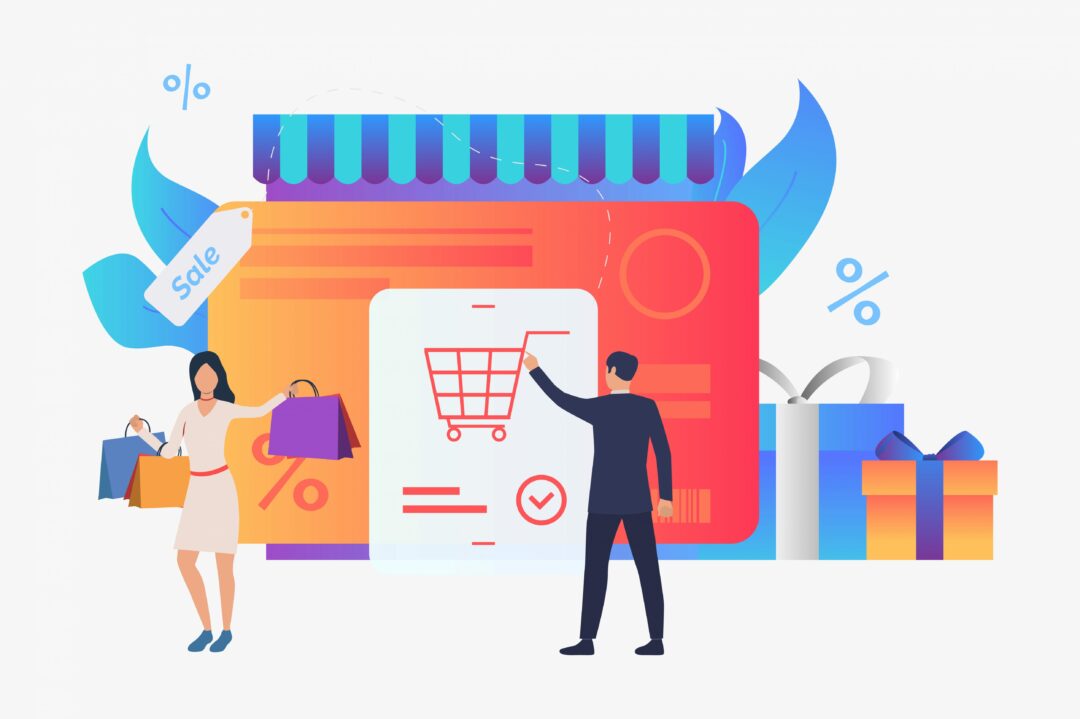E-commerce Business Process Outsourcing Trends Every Leader Must Know
Blog: MattsenKumar Blog
The COVID pandemic has helped even the loss-making e-commerce marketplaces gain a second chance. By making “delivery of essentials” a priority many e-commerce companies changed their brand perception. For a number of e-commerce players from around the globe, delivering essentials and grocery became an exit strategy.
While many new customers join the band-wagon and started shopping online but 80% of existing users reclaimed that “companies that offer quality experience is our first preference”. The pandemic accelerated the adoption but the rules continue to be the same. Platforms that offer quality experience will win in the long run.
E-commerce Challenges
Today, the prevalent challenges faced by e-commerce industry includes product return request, brand interference, slower product discovery, cart abandonment, and low conversion rate. The role of BPO in the e-commerce industry is evolving. Outsourcing agencies are helping e-commerce players get rid of conventional problems through innovative solutions and methodologies.
Let’s understand the top e-commerce challenges in detail
Brand Interference: For example, an online shopper looking for Nike shoes comes across products from other brands even when he specifically searched for “Nike shoes”. The presence of other brands even when looking through branded keywords is referred to as brand interference.
Often sellers leverage this malpractice to promote their fake or imitated products, which results in increasing return rates, bad customer experience, and decreasing customer loyalty.
Slower Product Discovery: Customers have evolved and now they are preferring online stores over search engines like Google for identifying new products. Earlier if product catalogs had the requisite keywords, it was enough to improve product discovery but catalogs need proper attribute values, clear mention of category, and presence of tags so that customers can search for tags and still find relevant products, faster.
Speed is the key to product discovery, the faster a customer finds the relevant product, the more time they are likely to spend on your platform looking for more products.
Low Conversion Rate: Low conversion rate is when customers arrived on a product page, viewed the details but didn’t take measurable actions like “add to cart” “subscribe to the newsletter”, “wishlist it” or “buy now”.
Why customers view products and still don’t buy, well a percentage of people are just browsing through the site and not really looking to buy. There are customers who are actually looking to buy a particular product but still don’t buy it because they fail to find the right information or relevant attribute values.
For example, A customer looking forward to buying a watch will look for attribute values like “Waterproof”, “water-resistant” or “ip6 rating” if it’s a smartwatch.
Increasing Return Rates: Perhaps the most prevalent challenge faced by every e-commerce company; if we look at reports, we will find one of three products ordered online are returned. Products are being returned because:
- They looked different in real life
- Received a different product
- Received a fake or imitated product
- The product didn’t match the description
- The customer changed his mind
- Customer unavailable for delivery
How Outsourcing Can Help with These Challenges?
For decades, outsourcing has been viewed as an opportunity to reduce costs and save time. In the recent past, outsourcing helped Fintech players fast-track the KYC process for instant account opening and they also ushered telecom companies into the era of instant SIM card activation.
By leveraging artificial intelligence and machine learning, outsourcing companies have devised paradigms that help e-commerce players get on top of their problems. Be it attribute value missing or brand interference, outsourcing has the answer to all bizarre e-commerce challenges.
Here’s how outsourcing helps with the aforementioned challenges:
Catalog Quality Check to Reduce Brand Interference: When e-commerce players invest in catalog quality check services, a team of e-commerce catalog professionals traverses the entire catalog looking for errors. These processes identify errors that occurred by mistake and even remove deliberately added content or wrong information.
When category-specific experts handling all these checks, e-commerce players can be sure that their catalog is going to be error-free and it will support faster product discovery, quality customer experience, and improved conversion rate too.
Catalog Enrichment for Product Discovery Improvement: With investment in catalog enrichment, e-commerce players are eyeing improved product discovery. How does it work? Well, when catalogs are enriched, they are checked for missing and wrongly placed attribute values. When missing attribute values are added and wrong values are corrected, on-site search engines start to identify these products and then rank them for relevant keywords leading to faster product discovery.
Catalog enrichment also opens the door for exciting opportunities like Theme-based bucketing and cross-selling or up-sell opportunities.
Catalog Writing for Low Conversion Rate: Unlike brick and mortar stores, e-commerce stores do not have sales representatives. Product description and images are required to do the talking, often CTAs and attractive discounts work wonders but nothing comes close to the magic of quality product description.
A well-written product description is crisp, to-the-point but has all the required information about a product. Creating a quality catalog and updating it often with new information helps e-commerce players drive more conversions.
Benefits of Ecommerce Outsourcing
Outsourcing is often leveraged as a cost-cutting methodology but it also doubles as the best instrument for acquiring subject matter expertise. Outsourcing to an experienced player can enhance productivity and impact output.
By outsourcing projects that require industry expertise, e-commerce businesses can control the varied pain points. Outsourcing will help e-commerce platforms leverage the expertise from multiple industries to create a positive impact on customers’ journey.
The Role of BPO in E-commerce offerings following benefits
Logistic Improvement: Outsourcing entire logistics to an industry leader will help e-commerce platforms streamline their product delivery. Benefits of outsourcing fulfillment and return:
- Outsourcing will also bring in the requisite efficiency and e-commerce platforms won’t be dependent on the seller’s mercy for shipping products on time.
- Facilitate easier returns, which involves one-to-one pickups.
- Offer faster delivery options
Quality Customer Support: Affordable inbound and outbound call center outsourcing service providers in India are enabling e-commerce stores to offer quality support to their end-users. These outsourcing companies have a pool of talented employees working on efficient technologies to ensure improved customer satisfaction.
All best customer service outsourcing companies for e-commerce store guarantees a set of metric improvement. By measuring, benchmarking, and improvising on these metrics like NPS, CSAT, CES, AHT, and FCR, e-commerce customer service can be improved dynamically.
Competitive Intelligence: By leveraging competitive intelligence, e-commerce marketplaces can reach users directly and generate curiosity toward their platform and products. Be it seller acquisition, increasing breadth of assortments, or discovering popular products, competitor benchmarking and social media analytics are the two most effective methodologies. If e-commerce stores start focusing on building an in-house team of competitive intelligence, they will have to compromise on varied other fronts.
Outsourcing competitive intelligence to BPOs that leverage the power of e-commerce analytics to boost conversions and reduce pain points seems legit. Outsourcing not only saves the organization from building a team but also helps them access industrial expertise at an affordable price.
Outsourcing Trends E-commerce Leaders Must Know
1. Omnichannel Customer Service
In 2020, when the COVID pandemic started, organizations were tattered and customers were in despair. Lack of information about their ordered product left customers restless. A lot of these orders were lost, undelivered while some were delivered in a very inferior state. In fact, for a lot of products being delivered, customers were not provided with a return window, since lockdown stopped all logistic movement, customers were unable to return products and receive a refund.
Customers suffered a lot during the lockdown but it was the e-commerce players that took the biggest loss. Some of the customers decided never to shop from these stores simply because they failed to provide a timely update.
We live in an uncertain world and such disasters can repeat themselves. COVID-19 is making a return in 2021, the second and third waves are hitting varied countries and a lot of them are moving towards lockdown.
Is your e-commerce store prepared for another loss? Are you ready to take the backlash of your customers and see your brand reputation getting tattered? Well, this is no option. In a world where multiple technologies are making lives easier, e-commerce players need to diversify their reach.
The role of BPO in e-commerce will help organizations sync these multichannel capabilities and offer exceptional customer service. With multichannel support, e-commerce players can ensure that they are able to communicate the most important messages without any delay. On normal days, social media, live chat, customer support, and email support are just tools to improve customer experience but during a pandemic and during a disaster, these platforms double as a tool of mass messaging, which can help organizations retain brand loyalty and update customers about disruption in services.
2. Catalog Management for Better Experience
If we take a cue from food aggregators, then we will witness a marvel they have created. Their data is so optimized and maintained in such an innate manner that ensures quality customer support almost instantly. With optimized and digitized menus and available use of machine learning algorithms, they have created a system where customers are provided with an instant refund based on challenges faced.
E-commerce players can achieve a similar level of automation in customer experience management. To ensure all customer service requests are catered through live chat and customers are provided with the best resolution possible based on the nature of the product and challenges pertaining to the category, there are few things that need to be fixed, like:
- Effective use of keyword in catalog
- Optimized product titles
- Catalogs enriched with relevant attribute values
- Algorithms optimized for on-site search
Ensure catalog quality: With catalogs filled with errors, machines will end up ruining the entire experience because they cannot be trained to fix errors that were committed desperately by sellers. Catalog quality check measures can ensure that algorithms can function smoothly.
Optimized Catalog: To ensure algorithms can scan content and process it accurately, e-commerce players will have to ensure that all catalog content is generated similarly. Organizations can leverage affordable outsourcing services to prepare catalog content for millions of a product. A one-time investment that will have online stores save millions on customer service.
Catalog Enrichment: Enriching catalogs is a necessary step, it offers the following benefits:
- Improves on-site search
- Upgrades catalogs with the latest information
- Assists with Theme-Based Bucketing
- Improves up-selling and cross-selling opportunities
Catalog enrichment handles multiple challenges for e-commerce players like:
- Renders slow product discovery a thing of past
- Controls brand interference
- Controls increasing return rate
3. Invest in Seller Management for Higher Growth
With 2.5 million sellers, Amazon is the world’s biggest marketplace. Countries like India and China are now fuelling e-commerce growth. If we cover the other e-commerce unicorns like firstcry and noon.com, there are over a million sellers bringing a wide array of products.
With sellers leaving marketplaces to dropship, the e-commerce landscape will suffer excessively. Lesser sellers will lead to the monopoly of a few, and lack of competition will drive prices high and customer experience will take a dip too. In contemporary times, sellers are losing money because they have almost no support from marketplaces. Lack of education related to catalog creation, management, and enhancement is leading to product return, where sellers have to pay for shipping and reverse shipping.
- Fair Buy Button Competition: At times marketplaces limit the chances of independent sellers winning the Buy Now button for a lot of listing because a seller, who is directly affiliated or connected to them is selling it too. Such unfair practices have created dissatisfaction among sellers. Also, when independent sellers are not allowed to compete for the Buy Now button, a monopoly gets created, which leads to a price hike and customer experience takes a dip.
- Dedicated Grieve Management Channels: Yes! Just how marketplaces cater to customers on the priority they need to cater to sellers similarly. With marketplaces shifting a bit of focus on sellers, the whole ecosystem will benefit. Sellers will be able to make the most of every opportunity and also reduce the chances of getting duped by customers.
- Have a Feedback Mechanism: Lately cab aggregators like Uber and Ola have adopted a customer rating system, where drivers rate customers based on their behavior. While it is yet to be clarified how these aggregators plan to use that data but e-commerce players can have a similar system and it will assist sellers a lot.
4. Leverage E-commerce Analytics to Beat Competition
In the e-commerce industry, analytics is being leveraged to see what other players are up to. An insight into other competitors’ plans will help e-commerce players understand the direction in which the market is heading. BPO has a vital role to play in the e-commerce industry in the relevance of e-commerce benchmarking.
E-commerce benchmarking is a common practice of comparing the performance of an online store with the performance of its prime competitors. Such benchmarking activities are carried on basis of specified key performance indicators. E-commerce KPIs like site speed, catalog quality, delivery speed, or return policy can be used to benchmark one site against another.
E-commerce benchmarking fulfills the obligation of identifying areas where competitors are performing better. Such intricate scrutiny of competitors and their paradigms helps online stores understand the changes they need to incorporate. When carried out efficiently, these meticulous studies will reveal hidden gems of running a successful e-commerce store.
With e-commerce benchmarking, nascent and unconventional start-ups with new experiences to offer can rise to the market standard and stop industry leaders from creating a monopoly.
Benchmarking offers bootstrapped e-commerce stores and marketplaces with the power to discover the hidden sauce of online success. When conducted effectively, businesses with small teams can acquire data and tricks that can put them in the mainstream in very little time. These e-commerce giants have spent over 2 decades understanding customers and creating a unique experience, all these novel e-commerce stores need to do is the benchmark and work on the requisite data and offer a tantamount experience from day one.
Final Thoughts on BPO Trends for E-commerce Industry
It is tough for the e-commerce industry to expect a bright future without additional help. Outsourcing is assisting multiple e-commerce unicorns to gain customer attention, build brand loyalty, and offer an incomparable experience. With the right outsourcing partner, e-commerce players can find comprehensive offerings under one roof and gain a lot from it.
These e-commerce trends refer to the role of BPO in the industry and how it is increasing on a day-to-day basis. E-commerce companies should leverage their proven paradigms and industrial expertise to achieve a precedented growth rate.
The post E-commerce Business Process Outsourcing Trends Every Leader Must Know appeared first on MattsenKumar.
Leave a Comment
You must be logged in to post a comment.








